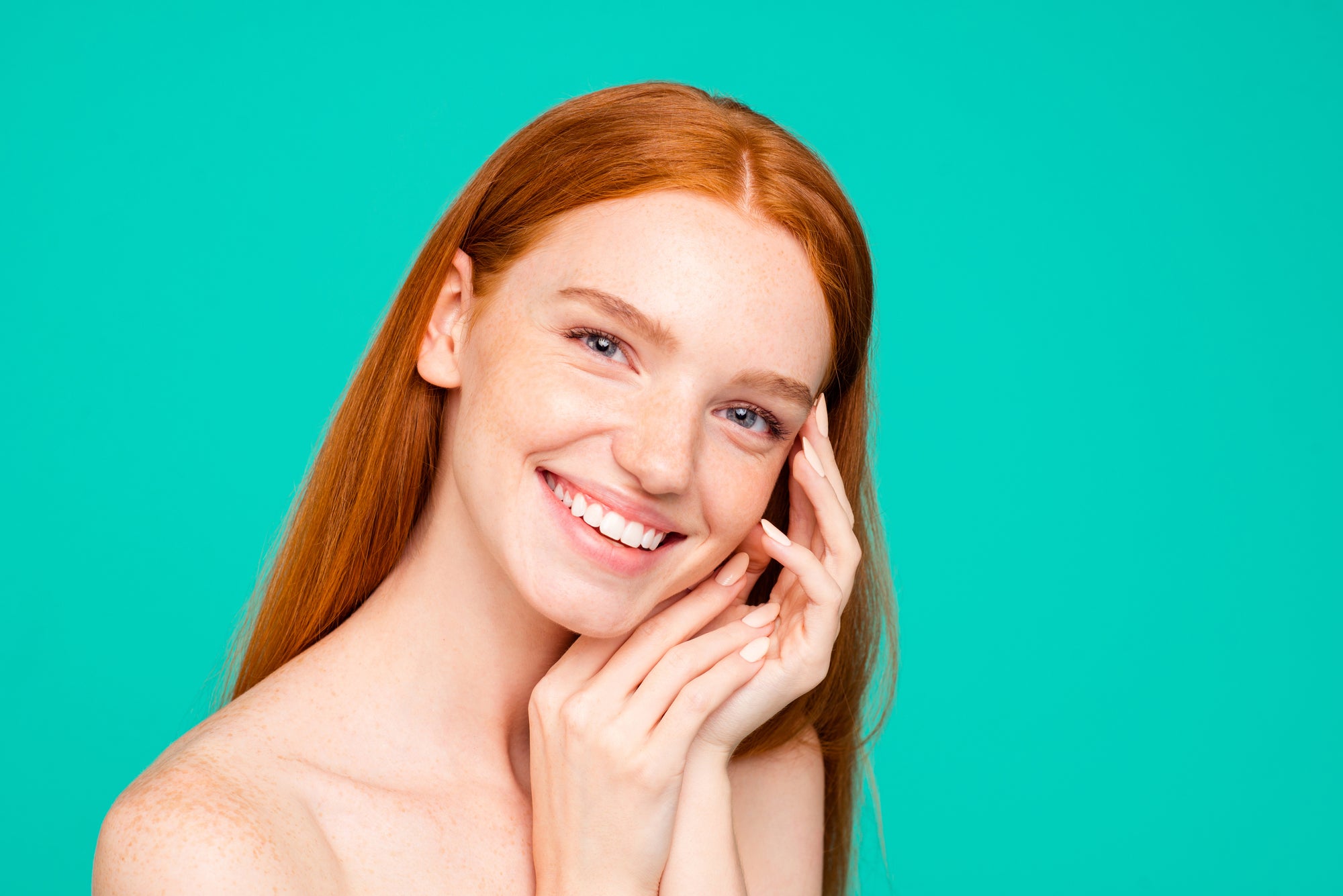

Bye Bye Breakouts: The Underlying Causes of Adult Acne and How to Help
Acne can be frustrating at any age, but it's exceptionally irksome to deal with as an adult. Many people associate acne struggles with teenagers and puberty, but in fact, individuals in their 20s, 30s, and even 40s also suffer from this pesky skin condition. According to the Cleveland Clinic, around 50 percent of women in their 20s and 25 percent of women in their 40s will experience acne.
For those suffering from adult acne, you’re probably thinking, when will this nightmare finally end? Luckily, there are a lot of different options out there to banish your breakouts. But to find the right option for you, it's important to first understand what the underlying cause behind your breakouts might be. This blog is here to help you identify potential causes behind adult acne and show you some ways to help, so you can say bye bye to your breakouts for good!
At What Age Does Acne Go Away?
Teen acne, which is caused by an excess of oil-producing androgens (male sex hormones) during puberty, tends to go away by the time a person reaches their early 20s. While teen acne can most often be attributed to this surge in oil production, adult acne is more likely to be caused by hormone shifts and chronic stress.
Women are more likely to experience acne in adulthood due to hormone fluctuations associated with factors such as menstrual cycles, pregnancy/postpartum, and menopause.
Teen Acne v. Adult Acne
Teenage acne typically appears in different areas than adult acne. During puberty, acne is most common in the T-zone (forehead, nose, chin), as well as on the chest and upper back. Because adult acne is caused primarily by hormonal changes, it tends to be most common around the jawline and chin.
Another key difference between teenage and adult acne is post-breakout healing rates. As you age, your skin cell turnover rate begins to slow, which extends the healing process after a breakout and can make acne scars more difficult to treat. Adult skin is also more prone to irritation, sensitivity, and dehydration, meaning that some of those harsher treatments that worked for you as a teen may not be as kind to your skin in adulthood.
Underlying Causes of Adult Acne
Hormone Fluctuations
Hormone fluctuations related to estrogen and progesterone levels are one of the most common causes of adult acne in women. This includes changes in hormones due to pregnancy, menopause, and other natural hormonal shifts for women.
Chronic Stress
We all experience stress in our daily lives. But overwhelming or chronic stress can cause an excess production of androgens, which stimulate oil glands and contribute to acne.
Family History
Genetics may also play a role in your adult acne. If a close family member or relative has experienced longer-than-average struggles with acne or adult acne, you may be genetically predisposed to the condition.
Diet/Exercise
Diet and exercise can also influence acne breakouts in adults. A new study, published in the medical journal JAMA Dermatology, found a correlation between the chances of having current acne and consumption of high-fat foods (including milk and meat) sugary foods and beverages a diet high in the combination of high-fat and high-sugar foods. If you have food allergies or sensitivities, these can also exacerbate your acne by increasing inflammation in your body.
When it comes to workouts, excessive sweating and oil-buildup can clog pores, leading to breakouts.
An Underlying Medical Condition
In a small percentage of people, acne can also sometimes be a sign of an underlying medical condition. For example, in women, a condition called polycystic ovarian syndrome (PCOS) can result in chronic acne. To test for such conditions, dermatologists will take a history and perform an exam to get to the root of the issue.
Ways to Help with Adult Acne
Resist the Urge to Pop
Popping your pimples when a breakout flares up is the ultimate temptation, but picking and popping can end up causing further harm to the skin. It can even lead to infection or scarring that can be difficult to heal as an adult. So, in other words, stop with the pop!
Enhance Your Pre/Post Workout Hygiene
If you frequently exercise and want to avoid worsening acne, we recommend adopting some pre-workout practices for your skin. This can include:
- Removing all your makeup/cleansing your face pre-workout
- Putting on clean workout clothes
- Using an oil-free sunscreen for the outdoors
For your post workout hygiene, Consider showering immediately after your workout. This can help to rinse away sweat and bacteria that can cause acne.
Choose the Right Products
To make sure your beauty and skincare products aren’t exacerbating your acne, it’s always important to read the product labels. For acne-prone skin, it helps to look for “noncomedogenic” products, which are less likely to clog your pores.
In terms of cleansers, we recommend seeking out products that are free of alcohols and sulfates, as these ingredients can dry out your skin and even worsen your acne. While it may be tempting to opt for harsh or drying products to get rid of your acne, gentle skin-loving cleansers like our Dandy anti-inflammatory shower gel will be much gentler on your skin and far better for your acne in the long run!
Consult a Dermatologist
Some of the causes of adult acne can require professional diagnosis and treatment. If you are struggling to manage your adult acne, we recommend talking to your dermatologist, as they can advise you on the best treatments available for you!
